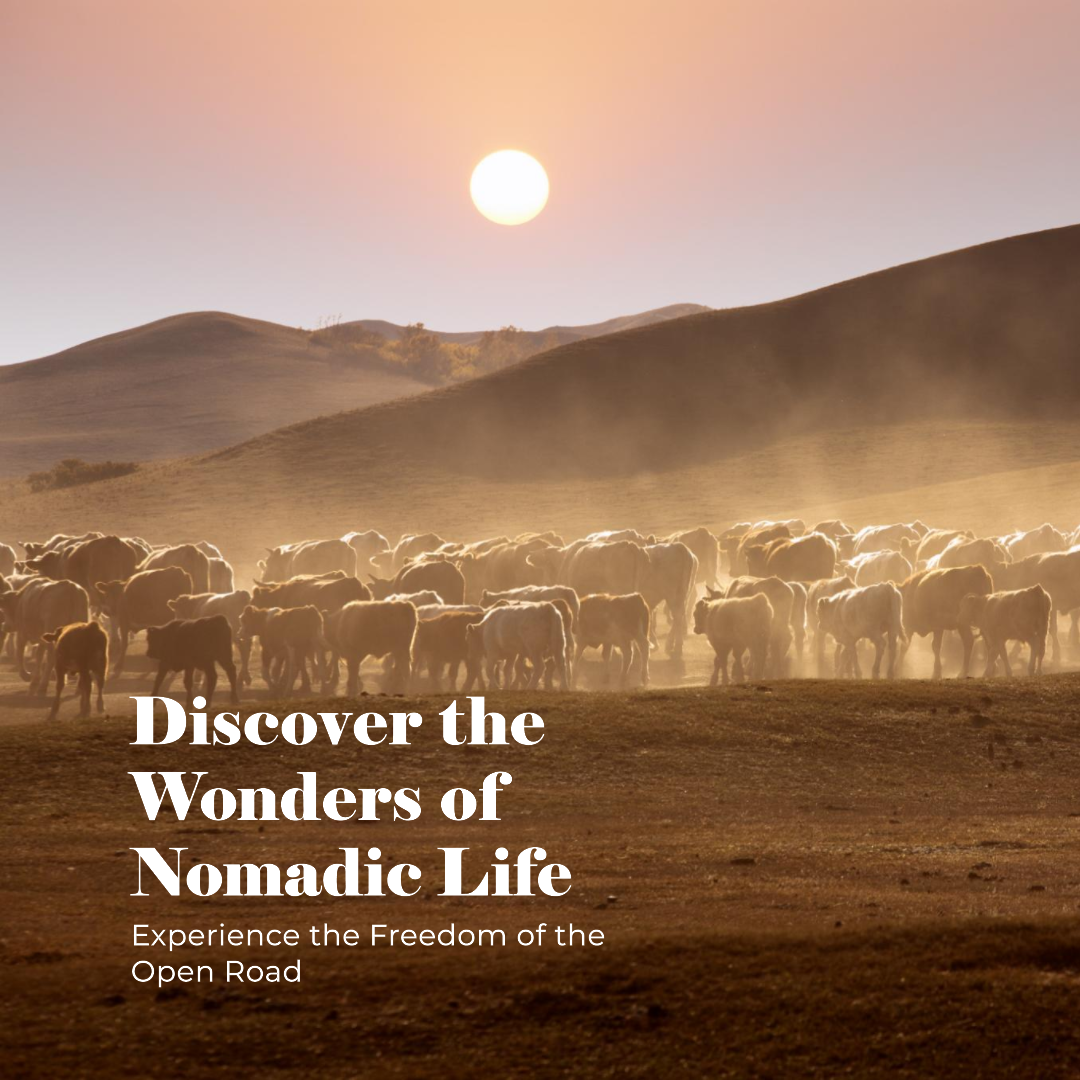
Electric Space Heater, Small Heater for Indoor Use, 500 Watts High Output & 2 Speeds, Mini Personal Heater for Office Desk Camping, Black
43% OffThe allure of the open road, the ever-changing landscapes, and the freedom to explore new horizons have captivated humans for centuries. Nomadic cultures and lifestyles, though diverse and distinct, share a common thread of embracing a life in motion. In this article, we’ll delve into the fascinating world of nomadism, exploring its history, characteristics, and the profound ways in which it continues to shape societies around the globe.
Introduction
Nomadic cultures, often romanticized for their inherent sense of freedom and connection to the land, have existed since time immemorial. From the roaming herders of Mongolia to the Bedouin tribes of the Arabian Desert, these cultures have played a crucial role in shaping the tapestry of human history.
A Glimpse into Nomadism’s Past
The origins of nomadism trace back to prehistoric times when humans were hunter-gatherers, following the movement of animals and the availability of resources. Nomadism served as a natural adaptation to the changing environment, allowing these early communities to survive and thrive.
The Diverse Faces of Nomadic Cultures
Nomadic lifestyles have taken on various forms across different regions and landscapes. From the reindeer herders of Scandinavia to the Maasai pastoralists of East Africa, each group has developed unique practices, traditions, and beliefs that are deeply intertwined with their environment.
The Art of Adaptation: Thriving in Various Environments
Nomadic cultures have mastered the art of adapting to diverse ecosystems – deserts, grasslands, tundras, and more. Their intimate knowledge of the land, weather patterns, and migration routes is a testament to their deep connection with nature.
Nomadic Economy: From Barter to Modern Trade
Historically, nomadic economies relied on barter systems to exchange goods. In modern times, however, globalization has introduced these communities to a broader range of trade opportunities, allowing them to engage in markets far beyond their traditional territories.
Social Structure and Family Dynamics
Nomadic societies often prioritize strong family ties and communal bonds. These communities depend on cooperation and shared responsibilities for survival, fostering a sense of unity and mutual support.
Education on the Move: Transmitting Knowledge
Education in nomadic cultures is a fluid process, with knowledge being passed down through generations orally and experientially. Children learn essential skills for their way of life, ensuring the continuation of traditions.
Technology’s Impact on Nomadism
Technology has brought both challenges and opportunities to nomadic cultures. While access to modern tools and resources can improve living conditions, it also raises concerns about the preservation of cultural identity and the erosion of traditional practices.
Challenges and Preservation of Nomadic Lifestyles
Nomadic lifestyles face numerous challenges, including environmental changes, political pressures, and limited access to essential services. Efforts to preserve these cultures involve finding a delicate balance between embracing progress and safeguarding heritage.
Nomadism in the Modern World
In today’s rapidly changing world, many nomadic communities are at a crossroads. Some are choosing to adapt to urban living, while others are striving to maintain their traditional ways amidst evolving landscapes.
Preserving Nomadic Heritage: Cultural Importance
The preservation of nomadic heritage is vital for maintaining the rich tapestry of human diversity. Efforts to document oral histories, traditional knowledge, and cultural practices are crucial for future generations.
Nomadism’s Environmental Footprint
Contrary to popular belief, many nomadic cultures have a minimal environmental impact. Their close connection to the land often leads to sustainable practices that prioritize resource conservation.
A Nomadic Future?
As the world continues to change, the essence of nomadism – adaptability and resilience – becomes increasingly relevant. The nomadic spirit of embracing the unknown and finding freedom in movement resonates with those seeking alternative ways of living.
Nomadism and Personal Freedom
The allure of nomadic lifestyles extends beyond physical movement. It represents a philosophy of personal freedom, breaking away from conventional norms and embracing a life that is uniquely one’s own.
Embracing Nomadic Spirit: Where to Begin
While adopting a fully nomadic lifestyle may not be feasible for everyone, incorporating elements of nomadism – such as connecting with nature, valuing experiences over possessions, and fostering community bonds – can lead to a more fulfilling and enriching life.
FAQs
1: Are there still nomadic cultures in the modern world? Yes, there are still many nomadic cultures around the world, although their numbers are decreasing due to various factors such as urbanization and changing economic conditions.
2: How do nomadic communities adapt to modern technology? Nomadic communities often embrace modern technology when it offers practical benefits, such as communication tools and access to medical services. However, they carefully consider the potential impacts on their traditional way of life.
3: What challenges do nomadic cultures face in preserving their heritage? Nomadic cultures face challenges related to climate change, political boundaries, and limited access to resources and services. These challenges can threaten their ability to continue their traditional practices.
4: How can I learn from the nomadic way of life without fully adopting it? You can learn from nomadic cultures by studying their principles of adaptability, sustainability, and community. Incorporating elements of their lifestyle, such as mindfulness of the environment and valuing experiences, can enrich your own life.
5: Are there efforts to document and protect nomadic cultural heritage? Yes, there are ongoing efforts by researchers, anthropologists, and cultural organizations to document and preserve the heritage of nomadic cultures. These efforts include oral history projects, cultural festivals.
Nomadic cultures and lifestyles offer a profound lesson in adaptability, resilience, and the beauty of human diversity. As we continue to navigate an ever-changing world, their stories remind us that there are countless paths to freedom, connection, and happiness.











